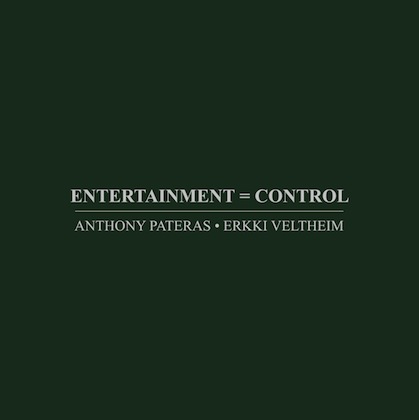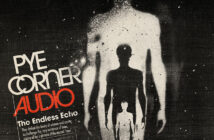Anthony Pateras is a Melbourne composer and performer now based in Europe, he’s performed and recorded with everyone from Robin Fox to Mike Patton and released two albums on John Zorn’s Tzadik label and a soundtrack on eMego. Live he’s capable of anything, regularly using prepared piano, though I’ve seen him play with various contact mics in his mouth, so who knows? Erkki Veltheim is an Australian violinist and has performed with numerous ensembles including the Australian Art Orchestra, London Sinfonietta, John Zorn and composed arrangements for artists including Black Arm Band, Gurrumul, and Shane Howard. He and Pateras have performed together for over a decade in various, often improvised ensembles.
Over 24 pages in the cd slick, Veltheim and Pateras extensively interview each other, providing what you can only imagine is the interview they’ve always wanted to give, touching upon the Marx brothers, ‘greatness’ in music, cross cultural collaborations, the perils of film music, the economy of music and the difficulty of holding out, keeping it going, and continuing to make underappreciated cutting edge experimental music in your thirties, forties and fifties. It’s a fascinating discussion, and provides some very real context for not just what makes these unique musicians tick, but why this piece might sound the way it does.
To some extent this is Pateras’ baby, released on his label. He has had total control from typeface to distribution, and whilst it’s further evidence of his DIY approach that has characterised his navigation through the craft since he was organising his Articulating Space series shows in Melbourne all those years ago, it also demonstrates a desire to be understood and appreciated. This is not a bad thing. There are too many experimental artists preaching to the choir. Pateras may have some unique and quite experimental approaches to creating sound, yet he doesn’t do so to alienate, and it doesn’t feel ego based either, rather he’s just digging down into his own personal rabbit hole – and he’s happy enough to periodically shine a light into it and allow you to jump in too. That said it doesn’t feel like he’s courting appreciation, it feels much more take it or leave it.
Entertainment = Control is one long piece, clocking in at just over 49 minutes. It’s quite dense with Pateras laying down what you’d consider to be the spine, some repetitive rapid-fire piano, with some slight variation in notes, though maintaining the cadence for much of the piece. Veltheim meanwhile does something similar, dancing around Pateras, moving in and out of time, with elements attaching and detaching like barnacles until over time the instruments hypnotically coalesce, and become one strange scratchy cascade of sound. It’s within this process that new tones appear periodically like an emotionally wrought organ note at just the right moment. Which is great, except they don’t really, they’re figments of the collision of instruments and instrumentalists. Ghosts in the collusion.
They play with dynamics and density, it’s a piece about momentum and duration, where over time they move well beyond musicality, or perhaps they redefine musicality to suit their own means. It’s a curious thing, if you were to only tune in to the final 10 minutes you’d wonder how music had been so redefined, or morphed or bastardised into such a strange place. It’s not necessarily the point but it’s a curious thing to consider, how being part of the journey, tuning in and out at various points, shapes both our understanding and acceptance of the piece.
In the liner notes Veltheim suggests that the only way to conjure up the overtones generated from Pateras’ piano at the end of the piece was due to the duration as they take so long to emerge. It demonstrates both stamina and a relentless pursuit of a musical vision. Veltheim meanwhile manages to make his violin sound like a rusty wheel, its relentless repetition echoing Pateras’ indefatigable hammering away at the keys, becoming in the end a plaintive high pitched wail. While much of the evolution in the piece happens gradually, almost obscured by the duration, at the 35 odd minute mark Pateras unexpectedly and overtly drops a bottom heavy bomb, changing the context of the piece without altering his style. It’s a demonstration of the power of dynamics and pitch, though also building then shattering rules and expectations. It’s also a demonstration of his freedom and refusal to be restricted even to a world that he himself has helped create.
The cd cover contains a quote regarding the impasse between the clear compositional intent and aesthetic supremacy of composed music and the non-dictatorial social supremacy of improvised music. It’s quite fascinating. From this quote and even the title of the piece, as well as some of the actions contained within, you get the sense that Pateras and Veltheim don’t want to be nailed down, restrained or labelled. Sure they want freedom and all its political implications, yet it’s in pursuit of something you can’t get any other way.




